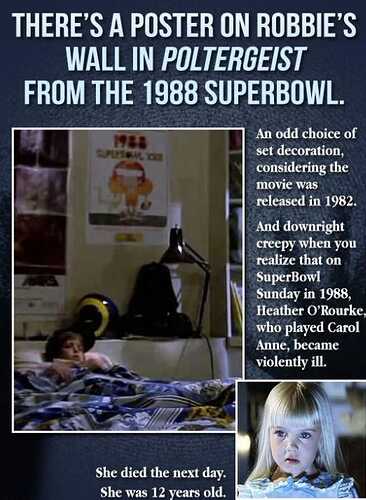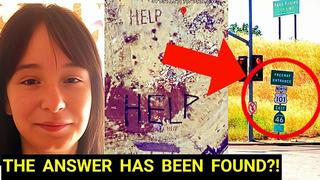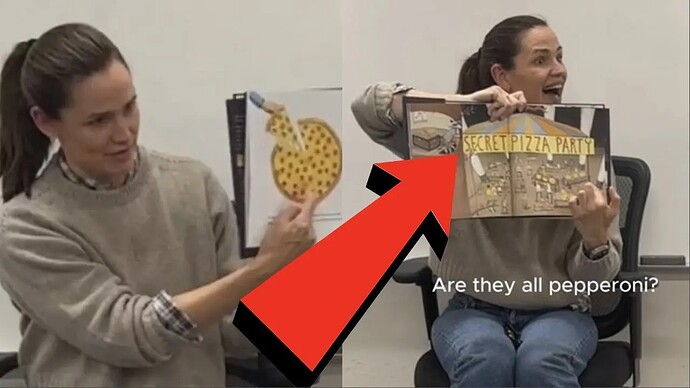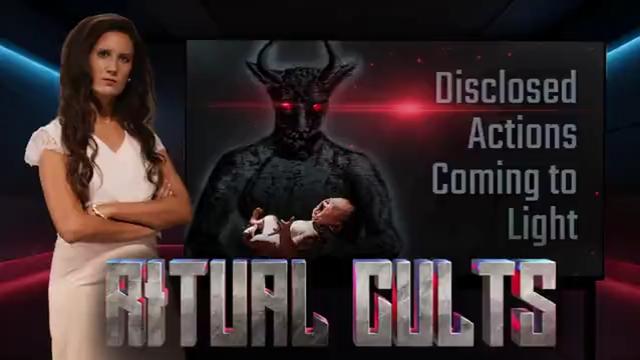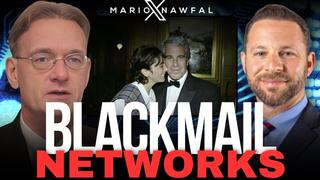Heather O'Rourke died at the body age of 12 years of a bowel obstruction.
Perhaps posters who share information from a certain very unreliable source should include a disclaimer stating that they have done their due diligence in verifying the facts. They should also indicate how credible they believe the information to be.
What do you think @ThePrisoner ?
It speaks for itself, it is Andrew Bridgen exposing the assassination, now whether he is considered a credible source is a matter of opinion, as is consulting fact checkers and AI as an arbiter of truth, it is in the eye of the beholder. One thing I can say is absolutely no human being can say they know 100% truth, and if they do, they are lying.
Does this perhaps avoid engaging with the actual question and implies that the information is self-evidently true, which I dont think it is?
Is he really, or merely claiming to?
Does this not subtly frame the statement as fact rather than an allegation or interpretation.
Credibility is not purely subjective; —just a personal viewpoint rather than something that can be objectively assessed. Can not credibility be assessed based on evidence, expertise, and track record? Saying it’s "a matter of opinion" dismisses objective evaluation
I believe this falsely equates rigorous fact-checking (which one should do one-self and not blindly believe someone elses) with personal opinion. Does not proper checking if something is (probably) true rely on on evidence, verification, sources of information etc unlike "beholders" who may be swayed by various things like confirmation-, authority- and emotional-bias.
Since AI is mentioned, let's see what my protocol droid C3PO (what a nerd) has to say about this (from a mindfully crafted prompt)
Click to expand AI analysis of the sentence in question
"Whether someone is considered a credible source is a matter of opinion, as is consulting fact-checkers and AI as an arbiter of truth, it is in the eye of the beholder."
This sentence is dense and contains several interconnected ideas, each of which can be broken down to reveal its meaning and the problems it poses. Here's a step-by-step breakdown:
1. "Whether someone is considered a credible source is a matter of opinion"
- What it means: This suggests that the credibility of a source is entirely subjective and depends on individual perspectives. In other words, what one person considers credible, another might not, and there’s no objective way to determine who’s right.
- Why it’s problematic:
- Ignores objective criteria: Credibility isn’t purely subjective. It can be assessed based on measurable factors like accuracy, transparency, consistency, and expertise. For example, a peer-reviewed scientific journal is generally more credible than a random blog because of its rigorous review process and reliance on evidence.
- Creates false equivalences: By framing credibility as a matter of opinion, this statement implies that all sources are equally valid, which isn’t true. A source with a track record of accuracy and transparency is objectively more credible than one with a history of spreading misinformation.
- Encourages relativism: If credibility is just an opinion, it becomes impossible to hold anyone accountable for spreading false information. This undermines the importance of evidence and critical thinking.
2. "As is consulting fact-checkers and AI as an arbiter of truth"
- What it means: This suggests that relying on fact-checkers or AI to determine the truth is also a matter of opinion. In other words, whether you trust fact-checkers or AI is up to you, and their conclusions are no more valid than anyone else’s.
- Why it’s problematic:
- Dismisses evidence-based evaluation: Fact-checkers and AI tools are designed to evaluate claims based on evidence, data, and logical analysis. They aren’t perfect, but they provide a more objective basis for determining truth than personal opinion.
- Undermines expertise: Fact-checkers are often trained professionals who use transparent methodologies to verify claims. By equating their work with personal opinion, this statement devalues their expertise and the rigor of their process.
- Misrepresents AI: AI tools, while not infallible, are trained on large datasets and use algorithms to identify patterns and inconsistencies. They aren’t "opinionated" in the way humans are; they operate based on data and logic. Dismissing them as subjective ignores their potential to provide valuable insights.
3. "It is in the eye of the beholder"
- What it means: This phrase reinforces the idea that truth and credibility are entirely subjective, depending on how each individual perceives them.
- Why it’s problematic:
- Promotes relativism: If truth is "in the eye of the beholder," it suggests that there’s no objective reality or shared facts. This can lead to a breakdown in meaningful dialogue, as people retreat into their own subjective realities.
- Ignores consensus and evidence: While individuals may interpret facts differently, some truths are supported by overwhelming evidence and consensus (e.g., the Earth is round, vaccines save lives). Dismissing these as "subjective" undermines the importance of evidence and collective knowledge.
- Encourages intellectual laziness: If truth is entirely subjective, there’s no need to critically evaluate information or seek evidence. This can lead to the spread of misinformation and a lack of accountability.
The Core Problem: Relativism and Avoidance of Scrutiny
When the sentence is unpacked, its core message becomes clear: it promotes relativism—the idea that truth and credibility are entirely subjective and depend on individual perspectives. This is problematic because:
- It avoids accountability: By framing everything as a matter of opinion, the speaker avoids having to defend the credibility of their source or engage with evidence-based criticism.
- It creates false equivalences: It suggests that all perspectives are equally valid, even when some are based on evidence and others are not.
- It undermines critical thinking: If truth is subjective, there’s no incentive to evaluate information rigorously or seek evidence.
A More Honest and Clear Restatement
To make the sentence more transparent and honest, it could be rephrased to reflect the actual complexities of evaluating credibility and truth:
"While perceptions of credibility can vary, it’s important to evaluate sources based on objective criteria like accuracy, transparency, and expertise. Fact-checkers and AI tools can provide valuable insights, but they should be used alongside critical thinking and evidence-based analysis. Ultimately, while absolute certainty is rare, we can still assess the likelihood of a claim being true based on the available evidence."
Conclusion
The original sentence is problematic because it promotes relativism, dismisses evidence-based evaluation, and avoids accountability. By unpacking it, we can see that it undermines the importance of objective criteria, expertise, and critical thinking. A more honest approach would acknowledge the role of evidence and objective standards in assessing credibility and truth, while also recognizing the limitations of human perception and interpretation.
I believe this is a kind of strawman. No serious truth-seeking process (science, journalism, etc.) claims absolute certainty (Except that God is Good etc, obviously, LLTK)
Instead, truth is approached probabilistically, The phrasing also implies that since no one has 100% truth, all sources are equally uncertain—which is not the case. Some claims are vastly more probable than others.
I want to emphasize that I’m sharing this in a spirit of brotherly love and helpfulness—not out of a desire to simply be "right" or to argue for the sake of argument. My intention is to contribute to clarity and understanding, as I genuinely believe the analysis below is worth considering.
I also recognize that past interactions on this forum may shape how my words are received, and I don’t wish for any preconceived ideas to create unnecessary division. My goal is not to be at enmity with anyone but to engage in thoughtful and constructive discussion.
Previously you have agreed that AI is likely satanically inspired, so why do you literally keep playing Devil's Advocate? No organization or earth-bound entity will win your arguments for you, but you WILL keep on trying to convince us this is not the case. Be it fact checkers ( which were founded to counter the truth ) or AI which will be used to rule over us.
Both of these institutions were totally discredited during the Covid Pandemic, and have zero to do with TRUTH, and more to do with being whores for the Pharmacutical Industry. Exhibit A:
I have no problem calling myself a Conspiracy Theorist, rather than a Truther. No one knows the truth so Truther is a mis-nomer. I embrace the CIA created insult.
Do you believe that you’ve successfully countered the issues presented in my message?
Two **** ****** were intentionally left in it. Can you identify them and the reasons why they were left in, and can you see the what my next message will say?
Apologies for this “*****”, brother.
Peace be upon you.
May peace be upon you too...
The AI analysis and the words science and journalism was left in on purpose, for atleast two reasons.
Did you really think I would make such a lousy mistake by contradict myself by saying "no serious truth-seeking process" and then, cite something as problematic as science and journalism as prime examples?
I was not referring to human science and journalism.
The most serious truth seeking process comes from Father, and all his sciences are one.
I believe we should ponder upon what journalism means in relation to what we are doing here/our channels of information and for instance The Gibraltar messenger. Is it not a form of journalism?
I do not believe that you are citing me correctly.
Perhaps you remember how I once said that I believe that the right way of living on planet Earth was in the garden of Eden. So we shouldn't be digging up resources from the ground and building contraptions etc.
If I cite TWHOFTF:-
12:16 The world has been sent communications-technology, in all its many varied forms, to make the publishing of God’s Truth, to all the nations of the world, quick and easy.
And say that it seems we are using mixtures of evil/non evil technologies as "neccesary evils", perhaps you are able to get what I'm explaining?
I hope that I've been able to explain to you, dear reader, that that arguments in my message was not backed by earth-bound things.
Do you still think that saying:-
is ok, and in accordance to The Way home or face The Fire, 3:131?
or is the definition of that message really more like a fallacious, nihilistic, self-contradictory appeal to relativism that dismisses objective truth, undermines evidence and expertise, and reduces credibility and truth to purely subjective opinion, all while implicitly claiming its own assertions are valid—a paradox that exposes its own incoherence. ?
Suicided | Full Documentary | January 15th 2021
Originally Released January 15, 2021. Written by Adam Riva and edited by filmmaker Mouthy Buddha, SUICIDED takes a closer look at the curious lives and deaths of those who sought to expose the silent epidemic of child trafficking. SUICIDED
Ritual Cults - Disclosed Actions Coming to Light (Walpurgis Night)
https://rumble.com/v6su4sx-ritual-cults-disclosed-actions-coming-to-light-walpurgis-night.html
On Walpurgis Night 30 April to 1 May, one of the highest holidays in Satanism, innocent children are sacrificed for Baal and Moloch as part of cruel blood rituals, according to numerous witnesses. Hundreds of survivors and witnesses break the silence despite massive threats from the perpetrators. There is only ONE way to stop these atrocities: Everyone must know! Therefore, KlaTV is broadcasting this documentary and is calling for the 2nd Day of Prayer against Ritual Violence. - Klatv.
The Missing Children Update Takes A Strange Turn
Related video: Strange Events Are Happening Right Now
